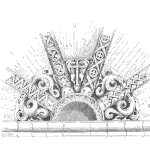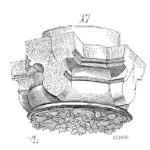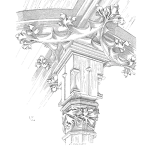
I am happy to share my third video on Design of Experiments (DOE-3). This is the third video in our series on Design of Experiments. It is recommended that viewers should watch the first two videos (doe-1-introduction-to-design-of-experiments and DOE-2: DOE Case Study of Spot Welding) before watching this video for better learning and understanding.
In this video, we have explained how to convert uncoded values of factor-levels to coded values and vice versa. We have also explained how to create a linear regression equation from the results of a full factorial two-level experiment.
[Read more…]













 Ask a question or send along a comment.
Please login to view and use the contact form.
Ask a question or send along a comment.
Please login to view and use the contact form.